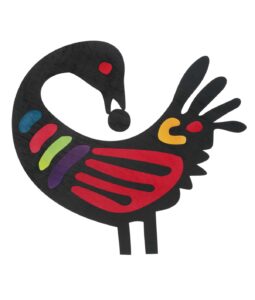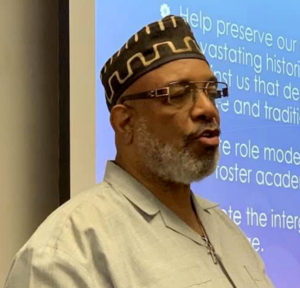A HISTORY OF AFRIKAN PEOPLE
This 10-lecture series is a special presentation for the Modjeska Simkins School by Dr. Burnett Gallman, who serves on the National Board of the Association for the Study of Classical African Civilizations and who has been teaching for 40 years.
This series is offered during the spring 2024 session on Sunday evenings 6:30-8pm on Zoom. It is free and open to the public as a service of the Modjeska Simkins School to promote historical literacy in South Carolina. To receive notices of these lectures with Zoom registration links, email network@scpronet.com.
The lectures are archived each week on our YouTube channel
• • •
Lecture 1: Historiography — The History of History
It has been repeatedly proven that the history of Black people in the world has been ignored, altered, denied, lied about and even appropriated by others. In this lecture, a few examples of this phenomenon are presented while offering probable causes for it. Without understanding and including the true and accurate history of the Afrikan people, who were kidnapped and enslaved in the so-called “New World,” any history would be built on the lies of omission and commission, miseducation, and racism of the kidnappers and enslavers.
Lecture 2: Kemet: Afrika’s Classical Civilization
In this lecture, expert references are used to discuss the history and achievements of ancient Egypt (or Kemet) — dynasty by dynasty.
Despite the many movies featuring non-Black actors such as Elizabeth Taylor, Charlton Heston, and Yul Brynner portraying ancient Egyptians, it has been repeatedly proven that the ancient Egyptians were Black. That is, until they were invaded by the Persian, Assyrians, Greeks, Romans and Arabs. Although there are still scattered scholarly attempts to resist this truth, most scholars have accepted this reality.
Lecture 3 and 4: The Afrikan Origin of Medical Science
Many principles that are taken for granted in Western medicine today were practiced regularly in Afrika long before Europe was “enlightened.” In this lecture, the history of healthcare in Afrika is detailed.
Lecture 5: Women in Ancient Afrika
Women in Western society are oppressed and agitating for their just due. Women in Ancient Afrika enjoyed equality and rights that non-Afrikan Weestern women could not even imagine.
Lecture 6: Precolonial West Afrika — Afrika Before the Arrival of the White Man
Contrary to what many duplicitous and, frankly, lying historians have written, enslavement did not bring Afrikans out of ignorance, barbarism, or savagery. In fact, many of the kidnapped and enslaved Afrikans were better educated than their kidnappers and enslavers. This lecture offers a brief introduction to West Afrika, where most enslaved Afrikans originated.
Lecture 7: Resistance to Enslavement
Despite the myth of the “happy slave,” there are many documented instances of the many ways that the enslaved Afrikans resisted their enslavement. Some methods were passive; others were deadly. This lecture explores and some of these methods.
Lecture 8: What is Racism?
Racism has been a major part of the world for the last 700 to 800 years. This lecture will discuss some possible origins of racism, and its various types — which may make some participants uncomfortable.
Lecture 9: Why AUSA Mistrust Doctors — Scientific Racism
Enslaved Afrikans were used as involuntary subjects for sometimes horrendous experimentation. This did not happen in a vacuum. This lecture is a continuation of the racism lecture, focusing on the results of ingrained racist thought.
Lecture 10: Environmental Racism
Environmental racism still manifests, and is devastatingly harmful to AUSA. This lecture will discuss the ways that the environment is being poisoned in targeted communities of color.
Lecture 11: Mechanisms of Oppression
We discuss the idea of oppression and the ways that ignorance and oppression are related.


